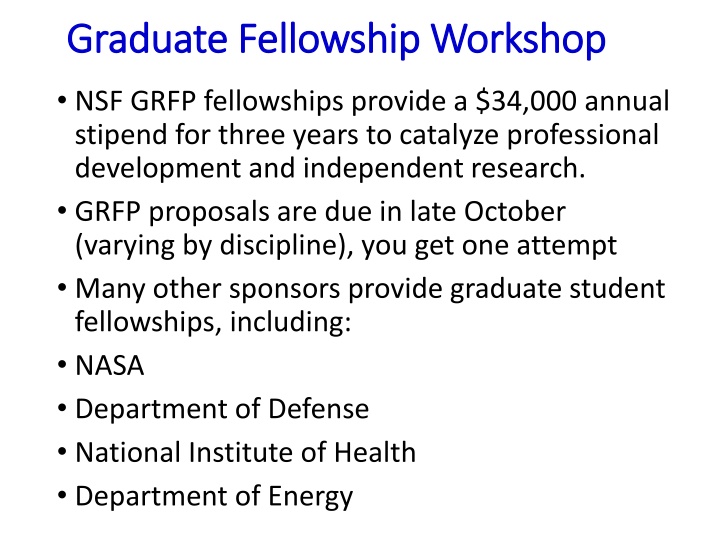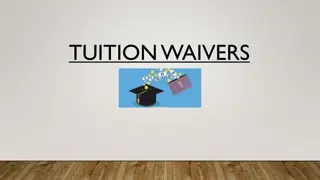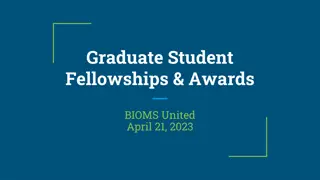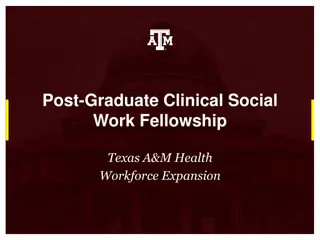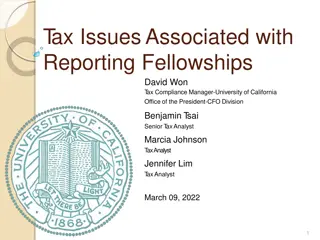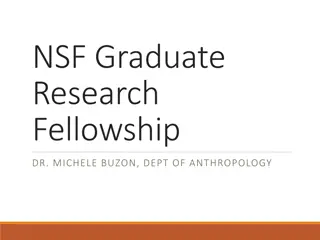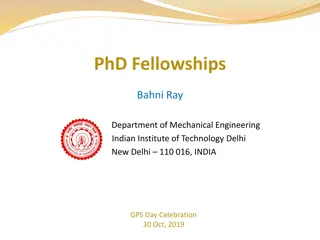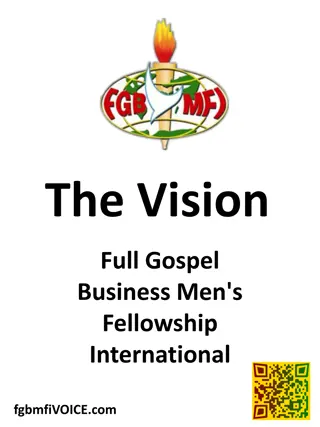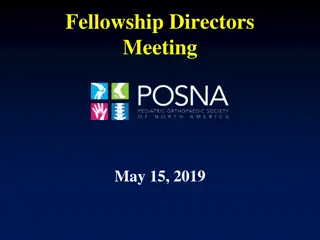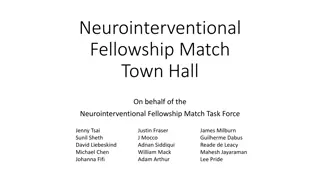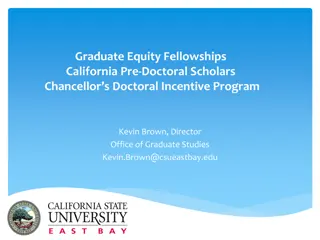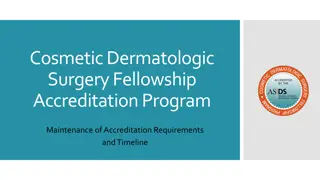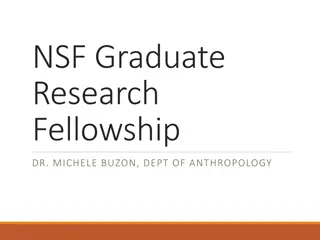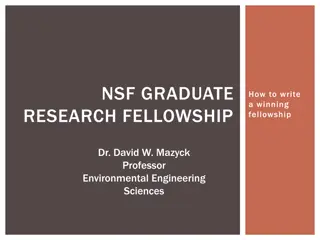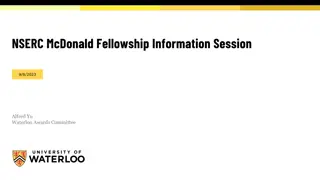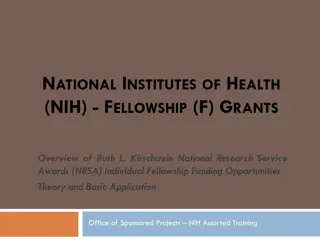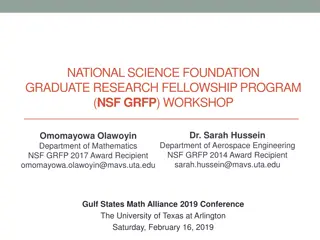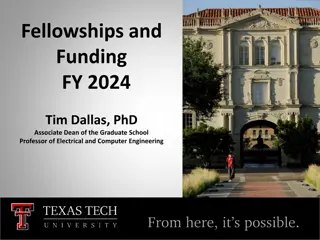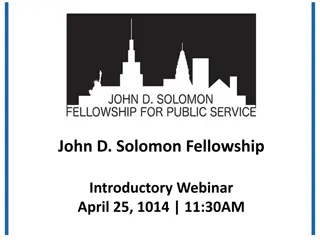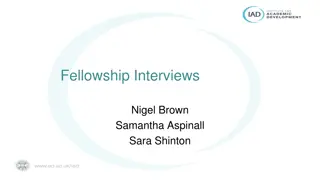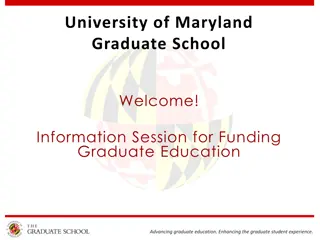Graduate Fellowship Workshop - Essential Tips & Strategies
Discover key insights for successful graduate fellowship applications, from crafting a compelling research statement to securing strong references. Maximize your chances with expert advice on proposal writing, intellectual merit, broader impacts, and personal statements. Gain valuable tips on starting early, addressing review criteria effectively, and showcasing your potential for independent research. Prepare a standout application with guidance from industry experts and elevate your career prospects in academia. Propel your research ambitions with strategic application techniques today!
Download Presentation

Please find below an Image/Link to download the presentation.
The content on the website is provided AS IS for your information and personal use only. It may not be sold, licensed, or shared on other websites without obtaining consent from the author.If you encounter any issues during the download, it is possible that the publisher has removed the file from their server.
You are allowed to download the files provided on this website for personal or commercial use, subject to the condition that they are used lawfully. All files are the property of their respective owners.
The content on the website is provided AS IS for your information and personal use only. It may not be sold, licensed, or shared on other websites without obtaining consent from the author.
E N D
Presentation Transcript
Graduate Fellowship Workshop Graduate Fellowship Workshop NSF GRFP fellowships provide a $34,000 annual stipend for three years to catalyze professional development and independent research. GRFP proposals are due in late October (varying by discipline), you get one attempt Many other sponsors provide graduate student fellowships, including: NASA Department of Defense National Institute of Health Department of Energy
General Tips for Applicants General Tips for Applicants Start early to allow time for revisions and reviews Read the solicitation carefully to make sure you address all the required topics Use subheadings and bold to help guide reviewers to key information Write to the review criteria: Intellectual Merit and Broader Impacts Use plain language to convey ideas clearly and concisely Do not assume that your reviewers are experts in your subfield Contact your reference writers early Choose references who can speak to different qualities Choose one or two backup references, just in case
Tips for Writing the Graduate Tips for Writing the Graduate Research Statement Research Statement Include a specific section for Intellectual Merit, plus weave it throughout your proposal How will your research advance knowledge in your field? Provide a thorough research plan Demonstrate creativity Discuss potential risks and alternative approaches Provide evidence that you have the skills to be successful Include a section for Broader Impacts How will your research benefit society?
Tips for Writing the Personal Tips for Writing the Personal Statement Statement Describe what motivates you to pursue a STEM graduate degree Ex: how has a unique personality trait or experience of hardship shaped your motivation? Discuss your growth as a researcher Don t be shy about sharing your accomplishments Provide evidence of perseverance, leadership and collaboration skills, creativity, initiative, etc. Articulate your long-term career goals Provide evidence of your contributions to society
Tips for Reference Writers Tips for Reference Writers Provide details about the applicant that speak to the review criteria (Intellectual Merit and Broader Impacts) Discuss what sets the applicant apart from other students What makes her/him exceptional? Provide evidence of the applicant s potential to succeed in graduate school Emphasize the applicant s potential as a future STEM research leader
Panelists Panelists Civil Engineering: Profs. Chris Higgins, Prof. Tim Strathman Dr. Bridget Ulrich, Juliane Brown, Andrew Koehler Chemistry: Allison Lim and Prof. Alan Sellinger Mechanical: Ava Segal and Jasmin Honegger Geology: Prof. Alexis Sitchler
